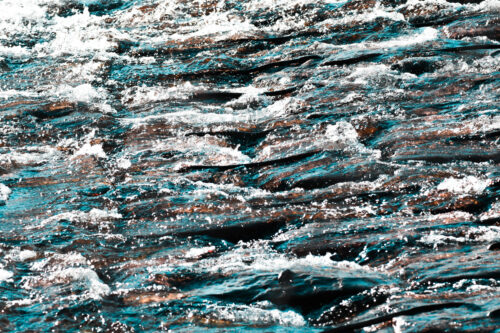Im Rahmen des Öffentlichen Programmes der ar/ge kunst
unpacking knowledges, kuratiert von BAU
13.04.2022, 18:00 – 19:30 Uhr
Treffpunkt: ar/ge kunst
Anmeldung: info@argekunst.it
Sprache: eng, deu
Parallel zum Ausstellungsprogramm der ar/ge kunst vertieft die fünfte Ausgabe von Reading Rivers das Archiv als lebendiges Dispositiv. Ein Archiv wird als Katalogisierungssystem betrachtet, das verschiedene Formen von Wissen sammelt und anordnet, seien es materielle Objekte, aber auch Ideen und Vorstellungen. Anhand von Textauszüge aus dem natur- und kulturwissenschaftlichen Kontext verabschieden wir uns von der Idee eines stabilen und unveränderbaren Archives und bewegen uns zum Gedanken eines Archives, das durch unsere Vorstellungskraft, Fiktion und das in Beziehung treten, wächst.
Nach einer Einführung durch die Kuratorinnen des Öffentliches Programms, hören sich die Teilnehmer*innen bei einem gemeinsamen Spaziergang an der Talfer einen 40minütigen Podcast in englischer Sprache an. In den Texten geht es beispielsweise um die Rolle und Funktionsweise eines geologischen Archives, um die Herangehensweise künstlerischer Praktiken an ein Archiv, und um die Erde selbst als Archiv, wo Boden, Sedimente, Eisen, Gesteine als wichtige Aufzeichnungen in der Klimawissenschaft dienen. Das Archiv wird so zu einem Ort, der nicht nur die Vergangenheit erzählt, sondern auf transformative und politische Weise auf die Gegenwart einwirken kann. Nach dem Anhören des Podcasts folgt ein gemeinsamer inhaltlicher Gedankenaustausch.
Voices: Simone Mair, Sophie Boobyer
Editing: Daniel Mazza
Zum Format Reading Rivers
Wie beeinflussen sich die Bewegungen des Körpers und das fließende Wasser beim Gehen, Zuhören und Lesen von Texten und Landschaft? Texte haben wie das Wasser eines Flusses einen klaren Ursprung, vereinen sich durch die kollektive Lektüre immer wieder mit Neuem, um in etwas Größeres zu münden. Sie durchqueren verschiedene Landschaften, Zeiten, Charaktere. Stoßen auf Hindernisse und fließen dort vorbei, wo es weniger Widerstand gibt. Das fließende Wasser des Flusses wird dem Wissen gleichgestellt, das zwar mit Fixpunkten verbunden ist, aber auch in ständiger Bewegung bleibt, um so komplexe Fragen der Gegenwart neu zu lesen.
Weitere organisatorische und inhaltliche Details werden bei der Anmeldung bekannt gegeben.
Teilnahme nur mit Green Pass und FFP2 Maske.
In the framework of the ar/ge kunst public programme
unpacking knowledges, curated by BAU
13.04.2022, 18:00 – 19:30
Meeting point: ar/ge kunst
Registration: info@argekunst.it
Language: Eng, Ger
In parallel to the exhibition programme of ar/ge kunst, the fifth Reading Rivers session lends new depth to the experience of the archive as a living entity. An archive can be considered a system of classification that compiles and orders various forms of knowledge, be these ideas and visions or physical objects. Drawing on text excerpts from the natural sciences and cultural studies, we leave behind the notion of a stable and unchanging archive and allow ourselves to be propelled instead by the thought of an archive constantly expanded by the power of our imaginations, fiction, and interrelation.
After an introduction by the public programme curators, participants take a walk together on the banks of the Talvera, while listening to a 40-minute podcast in English. The texts cover issues such as the role and operation of a geological archive, possible artistic approaches to an archive, and the earth itself as an archive in which soil, sediment, iron and stones serve as major records for climate research. Thus, the archive becomes a place that not only explains the past but also has a transformative political impact on the present day. The walk ends with a brief discussion of the questions raised by the podcast.
Voices: Simone Mair, Sophie Boobyer
Editing: Daniel Mazza
About Reading Rivers
What interplay unfolds between flowing waters and our movements when we take a walk while listening to or reading texts about landscape? Like water in a river, texts have a clear source. Through collective readings, they come into contact and combine with new things before merging in a greater whole. They cross different landscapes, periods, and characters. They come up against obstacles and take the path of least resistance to overcome them. A river flows just as knowledge does; it is bound by solid ground yet remains in a permanent state of flux, allowing new readings of complex contemporary questions.
Further practical and thematic details will be sent to you following registration.
The Green Pass and a FFP2 mask are mandatory for all participants.
Nell’ambito del programma pubblico di ar/ge kunst
unpacking knowledges, a cura di BAU
13.04.2022, ore 18:00 – 19:30
Punto d‘incontro: ar/ge kunst
Registrazione: info@argekunst.it
Lingue: eng, deu
Parallelamente al programma espositivo di ar/ge kunst, la quinta edizione di Reading Rivers approfondisce l’archivio come dispositivo vivente. Un archivio può essere inteso come un sistema di catalogazione che raccoglie e organizza varie forme di conoscenza, siano esse oggetti materiali, ma anche idee e concezioni. Utilizzando estratti di testo dalle scienze naturali e culturali, abbandoniamo l’idea di un archivio stabile e immutabile in favore di un archivio si trasforma attraverso l’immaginazione, la finzione e la relazione.
Dopo un’introduzione da parte delle curatrici del programma pubblico, i/le partecipanti ascolteranno un podcast di 40 minuti in inglese mentre camminano insieme lungo il fiume Talvera. I testi che saranno ascoltati, trattano, per esempio il ruolo e il funzionamento di un archivio geologico, l’approccio delle pratiche artistiche a un archivio, e la terra stessa come archivio, dove il suolo, i sedimenti, il ferro, le rocce servono come importanti registrazioni per la scienza del clima. L’archivio diventa così un luogo che non solo racconta il passato, ma può avere un impatto sul presente in modo trasformativo e politico. L’ascolto del podcast sarà seguito da uno scambio condiviso di idee sul contenuto.
Voices: Simone Mair, Sophie Boobyer
Editing: Daniel Mazza
Sul formato Reading Rivers
In che modo i movimenti del corpo e l’acqua che scorre si influenzano a vicenda quando si cammina, si ascoltano e si leggono testi e paesaggi? Come l’acqua di un fiume, i testi hanno un’origine chiara; attraverso la lettura collettiva entrano in contatto e si uniscono a elementi nuovi prima di continuare a fluire in qualcosa di più grande. Attraversano diversi paesaggi, tempi, personaggi. Incontrano ostacoli e li aggirano trovando percorsi dove c’è meno resistenza. Lo scorrere delle acque del fiume è come la conoscenza: ancorata a punti stabili, rimane comunque in costante movimento, permettendo nuove letture delle complesse questioni del presente.
Ulteriori dettagli organizzativi e di contenuto saranno forniti al momento della registrazione.
Partecipazione solo con Green Pass e maschera FFP2.



